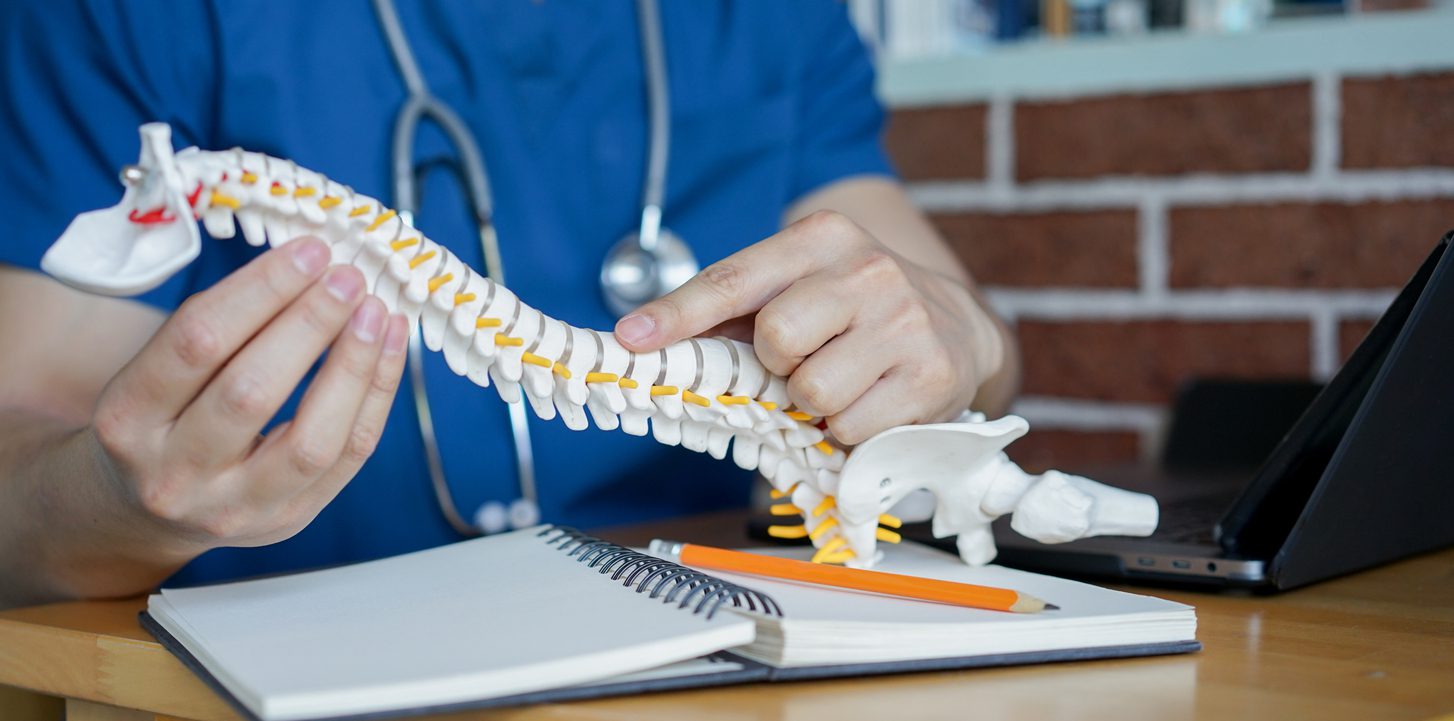
Your spine or backbone is more than just a structure that keeps you upright—it is the central support for your entire body. Poor spinal health can lead to pain, limited mobility, and other serious health issues. If you have ever suffered from back pain, you know how much it can affect your daily life.
Let’s discuss the basics of spinal health and what you can do to keep your spine in good shape.
What is the Spine?
Your spine is a collection of stacked vertebrae. There are 33 vertebrae in total, and they are classified into five regions depending on their location:
- Cervical (neck)
- Thoracic (upper back)
- Lumbar (lower back)
- Sacral (pelvic)
- Coccygeal (tailbone)
Each region has a unique function and structure. The spine also protects the spinal cord, a bundle of nerves that sends signals between your brain and the rest of your body.
Damage to any part of the spine can disrupt these signals, leading to various health issues.
Common Spinal Issues
Many people experience spinal problems at some point in their lives, such as these common issues:
Herniated Discs
Discs are soft, cushion-like pads between the vertebrae that act as shock absorbers.
A herniated disc occurs when one of these pads slips out of place. It presses on nearby nerves and results in pain, numbness, or weakness in the affected area. Herniated discs often result from aging or injury. They can heal with rest, chiropractic care, and therapy.
However, severe cases might require medical interventions like injections or surgery.
Scoliosis
Scoliosis is when the spine curves sideways. It often develops during childhood or adolescence and can range from mild to severe. Mild cases may not cause noticeable problems. However, major curvatures can lead to discomfort, back pain, and breathing difficulties.
For scoliosis treatment, you may need bracing, chiropractic care, or correction through surgery. Your doctor will suggest a plan depending on how severe the curve is and how it affects you.
Degenerative Disc Disease
As we age, the discs in our spine can break down or deteriorate. This can result in degenerative disc disease and cause chronic pain, reduced mobility, and stiffness.
Degenerative disc disease is often managed through a combination of treatments. These treatments may include chiropractic care, physical therapy, medications, lifestyle changes, and surgery.
How to Maintain Spinal Health
Maintaining spinal health is crucial for overall well-being. Here are some tips:
1. Exercise Regularly
You can build up the strength of your back muscles through exercise, helping your spine in the process. So, consider focusing on exercises that improve core strength, such as planks and bridges.
Aerobic activities can also help maintain spinal health. For example, walking, swimming, and cycling can improve blood circulation and flexibility.
Additionally, stretching routines can help keep your spine flexible and reduce the risk of injury.
2. Practice Good Posture
Whether sitting or standing, maintaining good posture helps reduce stress on your spine. You want to avoid hunching, and instead, roll your shoulders back and keep your feet on the ground.
When sitting, consider using a chair that supports the natural curve of your spine. You want to take breaks to stand and stretch a bit if you sit for long periods as well.
Proper posture reduces the risk of developing back pain and other spinal issues.
3. Lift Properly
When you lift heavy things, always bend your knees. Hold the weight close to your body and straighten your knee joints to lift.
Make sure you do not twist your torso, as this can increase the risk of injury. If an object is too heavy, ask for help or use tools like dollies or lifting straps.
4. Stay Hydrated
Drinking plenty of water keeps your spinal discs hydrated and pliable, which helps them absorb shock better.
Dehydration can lead to disc degeneration, increasing the risk of back pain and other spinal problems.
The amount of water you need per day may vary, but eight glasses is a good place to start. If you exercise, play sports, or perform physically-taxing things, you may need more.
5. Quit Smoking
Smoking restricts the blood flowing to your spine, resulting in your spinal discs degenerating quickly. Stopping this habit will improve your spinal health and lessen your chance of developing chronic back pain.
Additionally, smoking cessation improves overall health, reducing the risk of many other diseases.
When to Seek Medical Help
If you experience persistent back pain, numbness, or weakness, it is important to consult a chiropractor.
Recognizing the signs that it’s time to visit a specialist can be crucial for your health and well-being. Persistent pain in the back or neck that does not improve with pain relievers or rest can be a significant indicator.
Additionally, limited mobility, such as difficulty moving your head, neck, or back, should not be ignored. Sensations like numbness or tingling in your arms or legs may signal nerve issues requiring professional attention.
If you’ve recently experienced an injury, especially one affecting spinal alignment, a thorough assessment is advisable. Chronic headaches that frequently originate in the neck area can also be a sign of underlying problems.
Poor posture, which deteriorates over time and needs correction, is another important sign. Finally, joint pain in the knees, hips, or shoulders should prompt a visit to a specialist.
A chiropractor can promptly help diagnose and treat these issues effectively.
The Best Chiropractor in Grand Junction, CO
At WorkPartners Occupational Health, we specialize in helping injured workers return to normal function. We are a team of chiropractic and therapeutic specialists led by Dr. Christopher Angello that focuses on treatments without involving medication or surgery. Many companies trust us with the comprehensive occupational health care needs of their employees.
Dr. Angello is trained in chiropractic treatments of spinal injury and mechanical disorders of the musculoskeletal system, such as pinched nerves and ruptured discs. The entire team is committed to your relief.
To learn more about our services or to schedule a consultation with Dr. Angello, call our office today at (970) 241-5585 or use our convenient appointment request form. We look forward to providing you with the best chiropractic treatments in Colorado.






